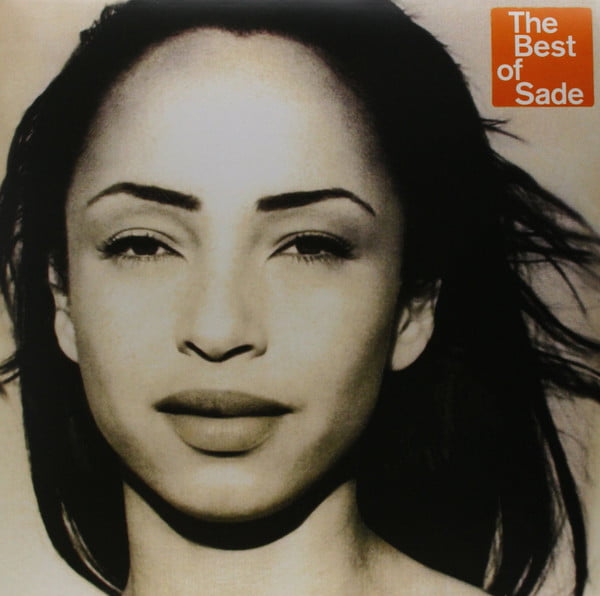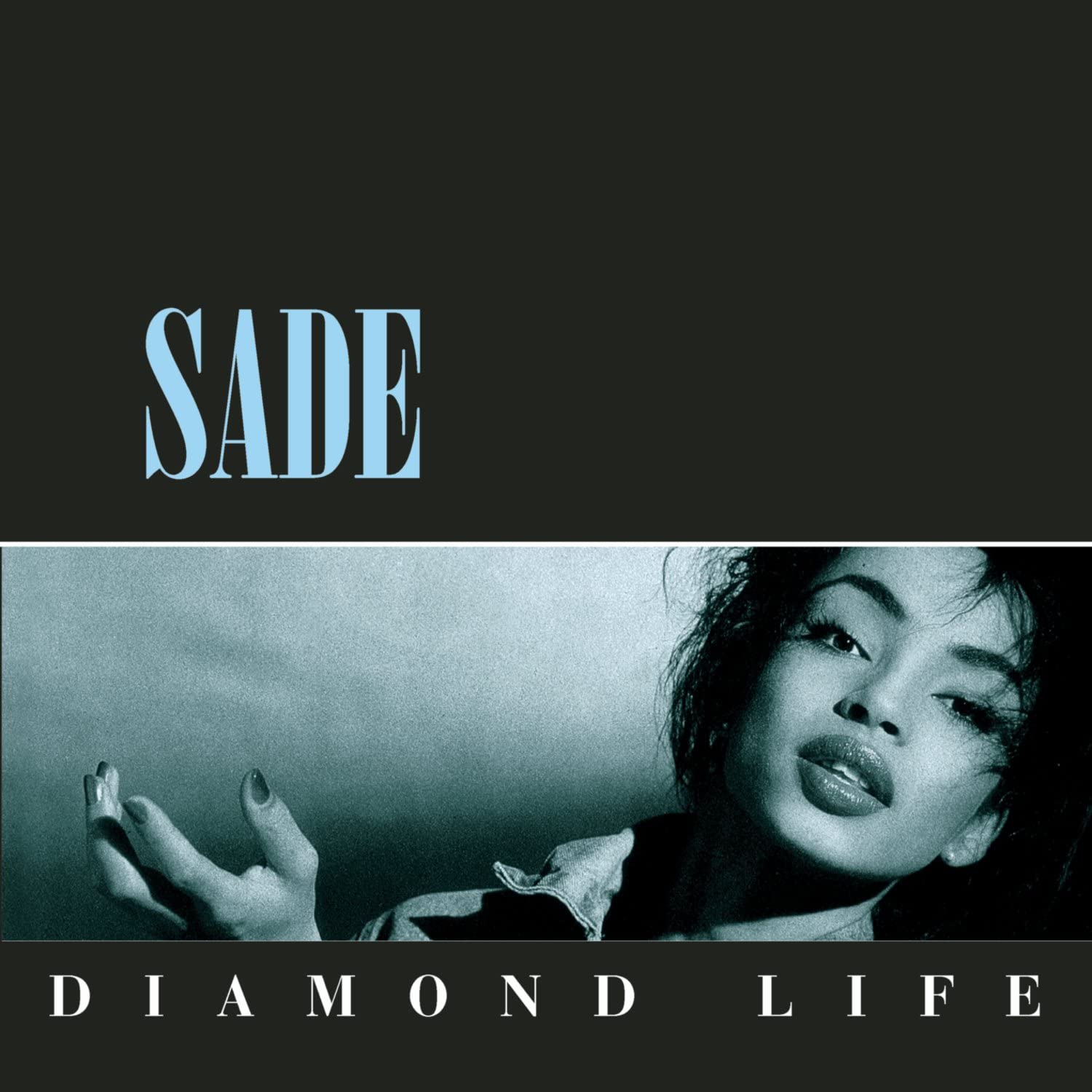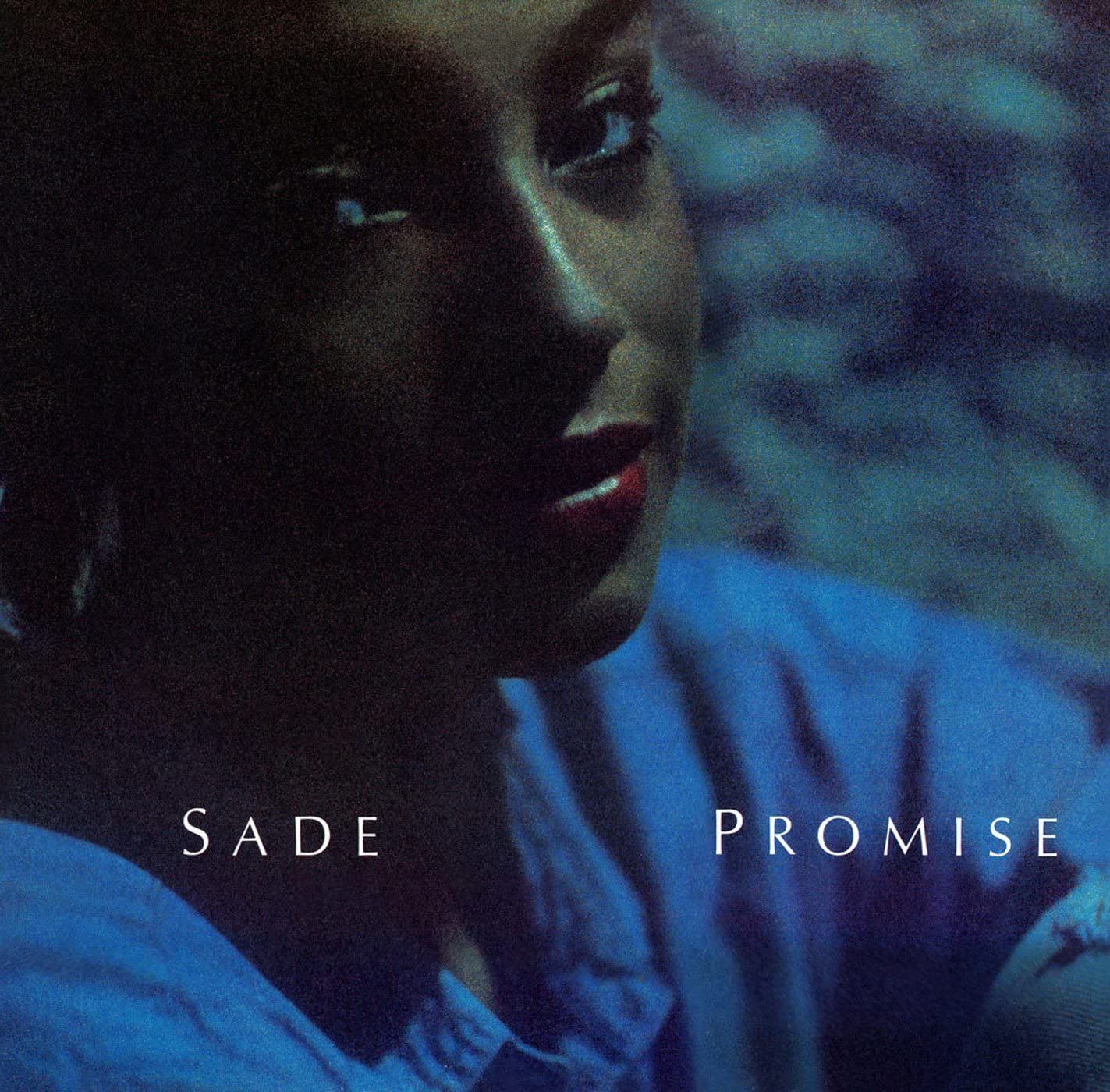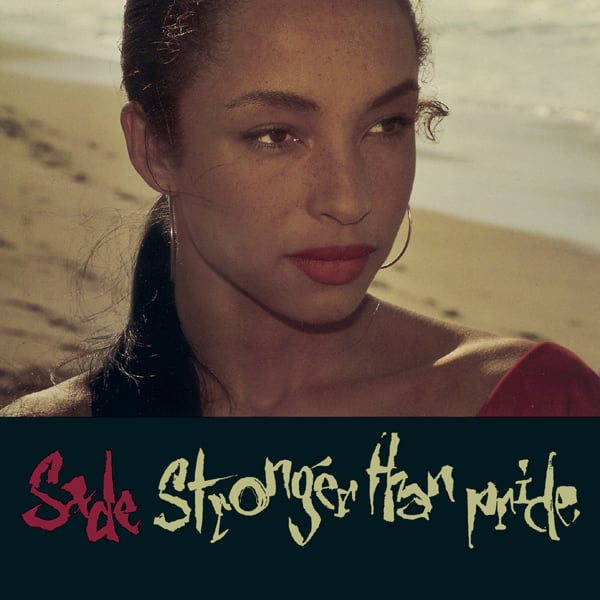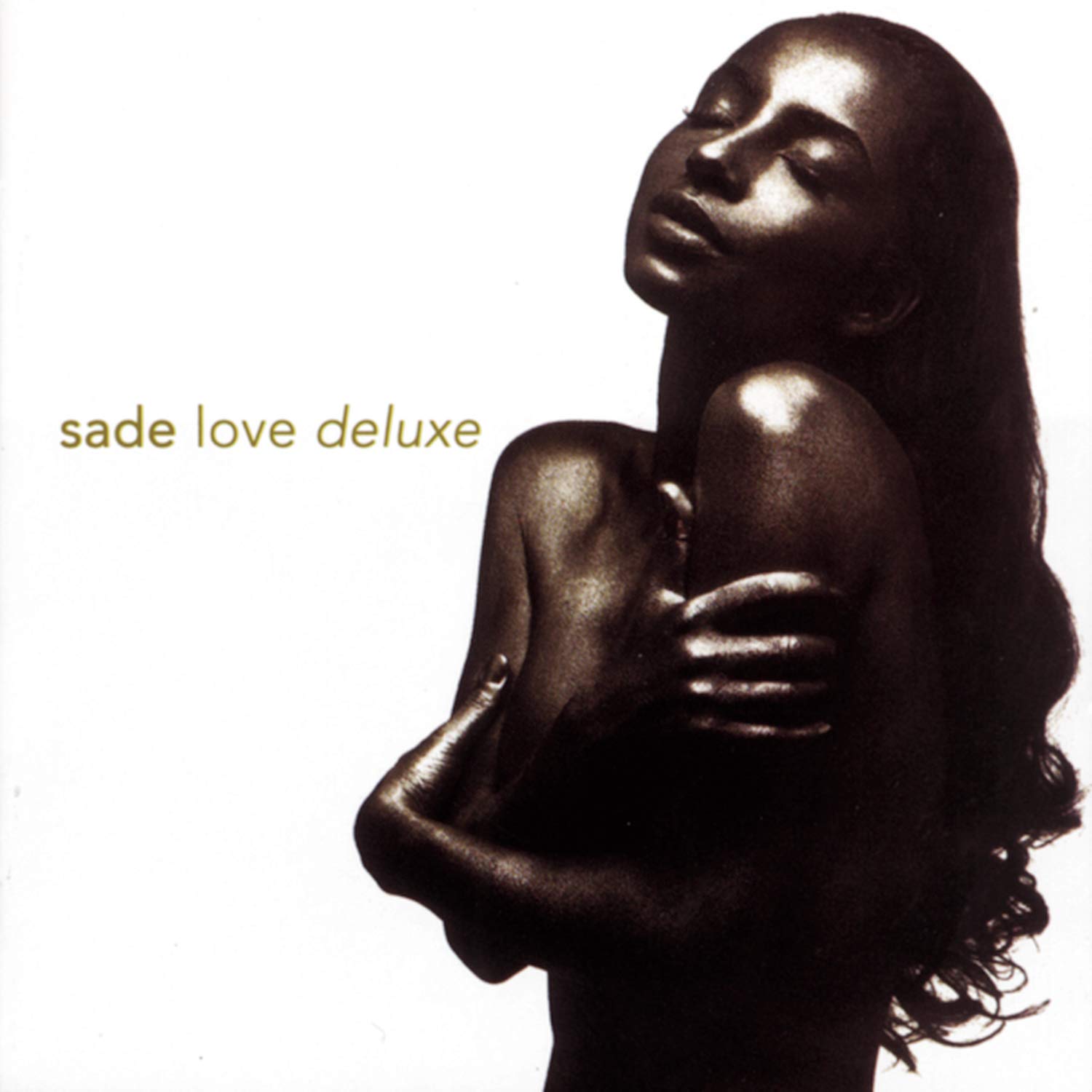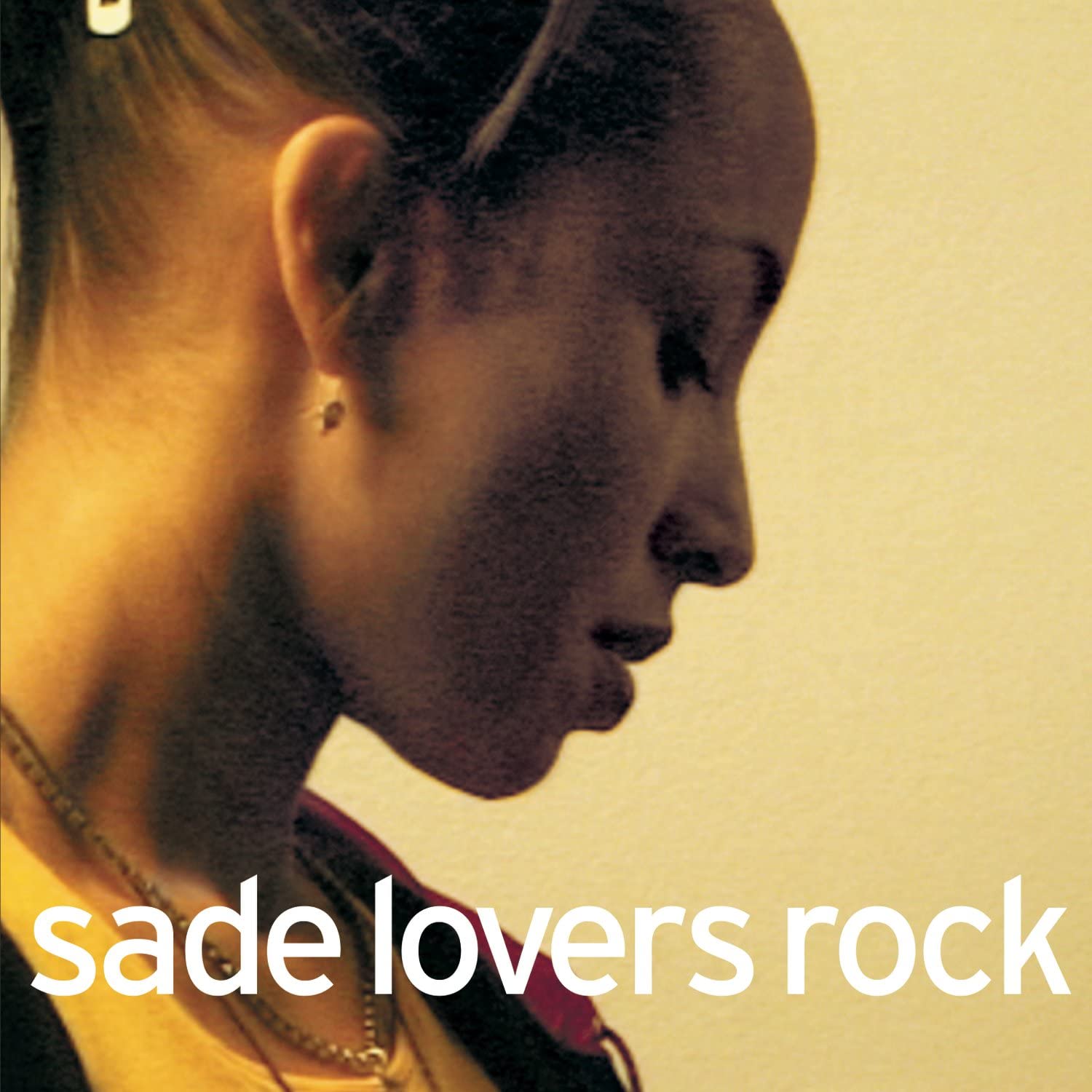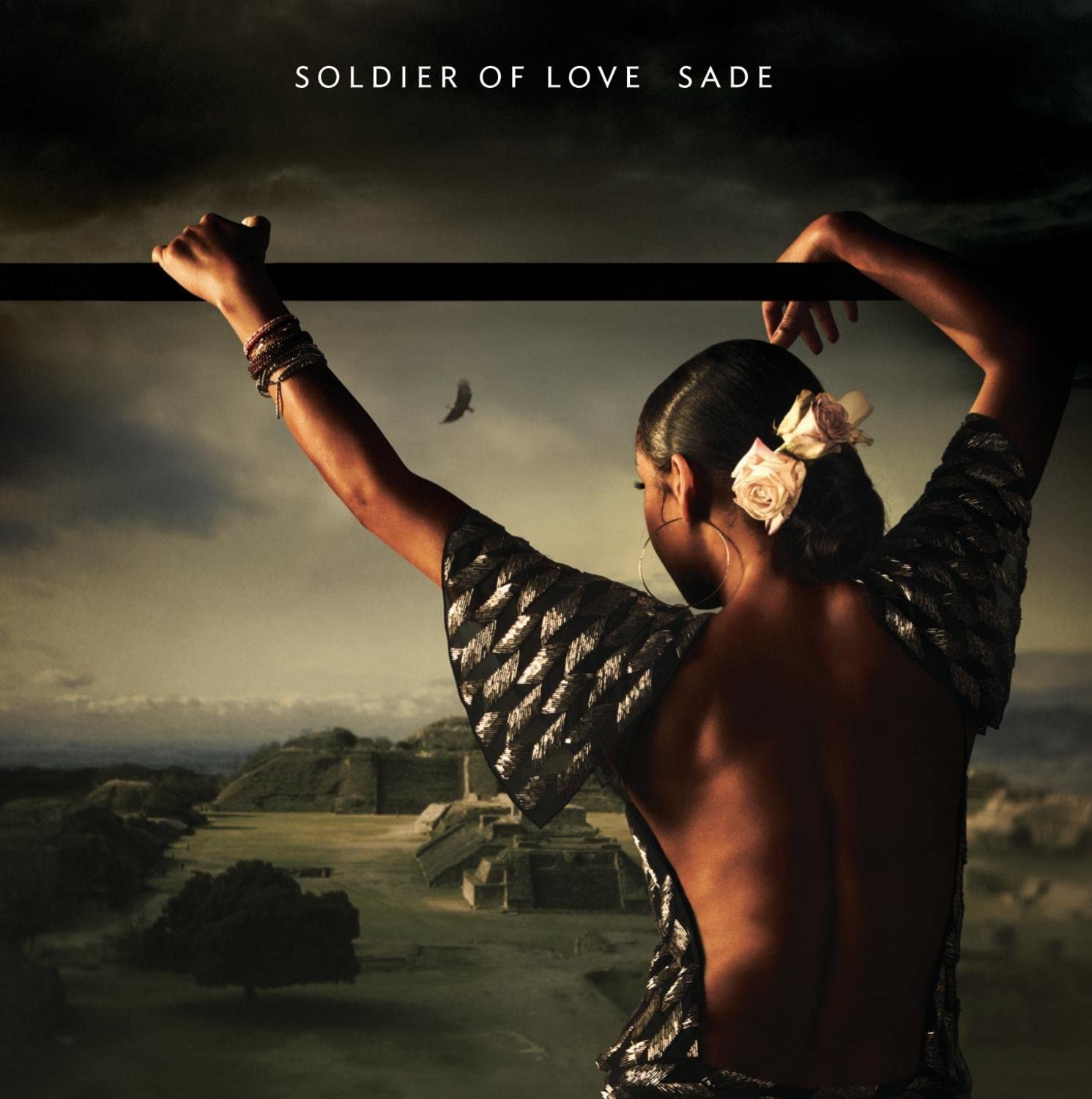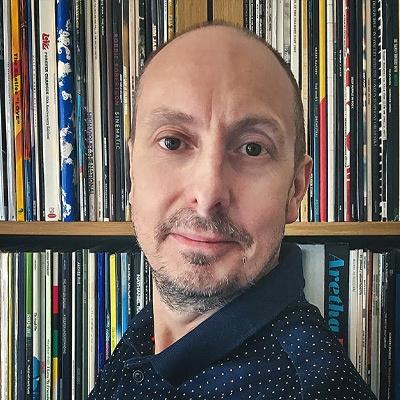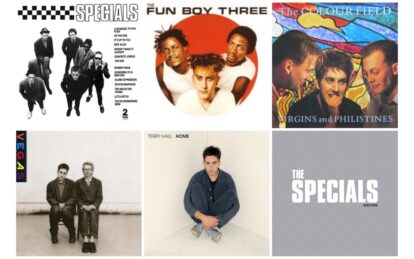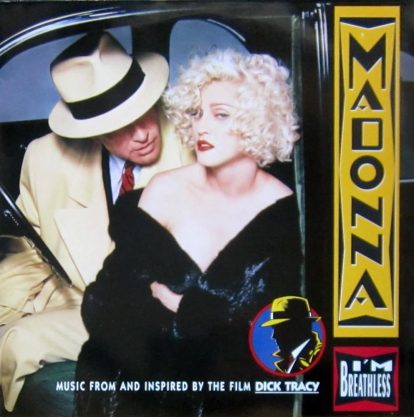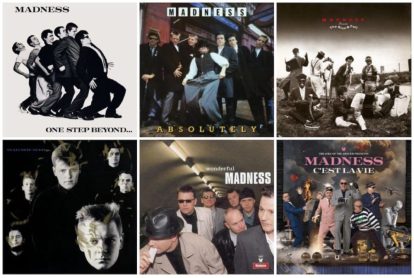Shifting an astonishing 75 million albums worldwide, over the past four decades Sade have finessed their ‘quiet storm’ sound for the masses. By Steve Harnell
Diamond Life
Released 1984
Label Epic
Chart positions: UK No.2 US No.5
In a circus of freaks, it’s the ‘straights’ who end up standing out from the crowd. Sade, now a byword for understated sophisti-pop, were singularly and wilfully out of step with the times when this debut arrived on the day-glo, effervescent pop scene of 1984.
Confusion still reigns, of course, exactly what the Sade ‘entity’ actually consists of. Many forget this is, in fact, a band rather than the solo project of frontwoman Sade Adu. And it’s a group, Adu aside, that remain almost totally anonymous except to the most fervent of fans, despite selling more than 75 million records worldwide.
Sade formed out of the ashes of Pride, a London funk/Latin outfit. When their original singer left, Adu was asked to audition: “They just assumed I could sing because I was black,” she told MTV. Although Adu first saw singing as a hobby, gradually an interest in songwriting grew into a burning passion.
Labels were initially reluctant to sign Pride but after Adu became hot property following appearances in style bibles like The Face, they signed the singer and Pride’s Stuart Matthewman, Paul Denman and Andrew Hale came with her as part of the package. Debut single Your Love Is King – a No.6 hit in the UK –immediately caused a sensation and Diamond Life followed swiftly in its slipstream.
The seductive, jazz-inflected soul was a world away from the outré bravura of the New Romantic scene. The US instantly fell in love with the band, too, particularly the seductive tale of a playboy, Smooth Operator, which made the Top Five there. The States had already been primed by opening 7″ release, the upbeat Hang On To Your Love.
Returning to the playboy theme, fourth track Frankie’s First Affair is another tale of a charismatic lothario who mistreats women. Adu’s still finding her feet as vocalist here although her performance is still charming.
Meanwhile, the lyrics for When Am I Going To Make A Living came to Adu on a bus journey one rainy London night, a downbeat tale of frustrated youth. Cherry Pie was among the first tracks Sade had written as a band and appeared regularly in their live sets, its scratchy funk is a highlight here. For another track from their earliest writing sessions, the bluesy Salvation Army tribute Sally, producer Robin Millar helped set the studio vibe by playing Ray Charles, Gil Scott-Heron, Aretha Franklin, Nina Simone and Marvin Gaye records.
The languid I Will Be Your Friend retains the relaxed vibe of the album and Adu nods to the influence of Radio Caroline that formed her musical tastes as a teenager with a cover of Timmy Thomas’ 1972 hit Why Can’t We Live Together.
Promise
Released 1985
Label Epic
Chart positions UK No.1 US No.1
Released in relatively quickfire fashion after the instant success of the debut album, Promise is a cultured extension of the essential components of Diamond Life.
Work began on recording just seven months after the release of that first LP and lasted until the summer of 1985. Regrouping with Diamond Life’s producer Robin Millar, with assistance from Mike Pela and Ben Rogan, Promise is very much business as usual. Recording sessions included a two-week stint in Provence, but the bulk of the material was laid down at the Power Plant Studios in London. Repeating the style of the debut, Promise was recorded live but by now technological advances such as sampled drums began to make their way into the mix. The band’s elegant musicianship has always been a trump card; they had the chops to keep studio trickery to a minimum.
Adu’s confidence as a vocalist had grown and arrangements including the brassy Is It A Crime? feel fuller and more ambitious. Driven by a wonderful walking bassline, it also features a supper club piano solo accompanied by muted trumpets.
It’s a downbeat opener, though, on an introspective record that looks inward for the most part – the album’s title was inspired by a letter Adu received from her father where he referred to a “promise of hope” that he would recover from cancer.
More upbeat is the percussive funk of standout The Sweetest Taboo, its “quiet storm” lyrical reference would go on to become synonymous with the band’s style over the ensuing decades. It’s at this point, too, you can discern the influence of contemporary US soul in the mix, particularly the bass technique of Marcus Miller, then shining on Luther Vandross albums. Elements of Vandross’ synth pads and slap bass backing tracks also feed into the funky Never As Good As The First Time.
The emergence of electronic textures is heard on the ticking drum machine backing to the stately War Of The Hearts. Unhurried at almost seven minutes, there’s a quiet strength to Adu’s lyrics: “Who’s calling the shots? One of us must end this masquerade…” Note, too, the wonderful interplay between fingerpicked guitar, sax and an emerging Fender Rhodes on Jezebel and the concise Mr Wrong which dips into Curtis Mayfield and Isaac Hayes classic soul. The languorous bluesy jazz instrumental Punch Drunk, written solely by Hale, may have been conceived to underline the fact that Sade were very much a band rather than a solo act plus backing musicians.
Part sung in Spanish, there’s a slinky Latin flavour to Fear, a delicate story song of a woman’s anxiety at living with her matador partner and facing the constant prospect of losing him. A closing track of loss, Maureen, is framed in a deceptively upbeat Acid Jazz-style groove and features a wry couplet: “You were a souped-up car in that rent-a-go-cart town.”
Promise was an immediate smash hit, topping the charts in the UK and US as well as numerous other countries worldwide. Although generally well received by critics, Rolling Stone’s Anthony DeCurtis damned Promise with faint praise, stating: “The careful elegance of production and instrumental settings seems little more than a strategy to conceal the limitations of Sade’s vocal range and skills as a song stylist.” That’s harsh…
Stronger Than Pride
Released 1988
Label Epic
Chart positions UK No.3 US No.7
If you need evidence of why Sade became so important to the emerging neo-soul scene of the 1990s, you’ll find it throughout their third studio album. D’Angelo, Erykah Badu and Lauren Hill would no doubt have immersed themselves in this – Sade’s Stuart Matthewman would also go on to be a key component in Maxwell’s sound on the singer’s debut album Maxwell’s Urban Hang Suite.
Stronger Than Pride was recorded in France and at the Compass Point studio in the Bahamas where Grace Jones laid down landmark albums Warm Leatherette and Nightclubbing. Its knowingly self-referencing near-title track, Love Is Stronger Than Pride, cuts to the heart of the confusion that often characterises a break-up:
“I won’t pretend I’m good at forgiving, but I can’t hate you/ Though I have tried…” It’s a delicate, hushed opener, all synth washes and airy guitar solos, setting the scene for soul grooves framed in the most minimalist of settings.
Five singles were culled from the LP but this still doesn’t feel like an album with one eye on the charts. Even its hookiest track, Paradise, a long-standing live favourite for the band, feels more like an extended funky jam than a tightly-honed conventional song. Denman’s bass threads through the track beautifully and he also impresses on Nothing Can Come Between Us, which features supportive backing vocals by Leroy Osbourne. Equally funky is Turn My Back On You, another track that’s essentially an extended bass-driven groove rather than a traditional song. At four minutes it would have been an easy-going highlight of the album; at six minutes, it’s one that would have benefited from a trim at the mixing desk.
Sade return to the Latin-flecked ambience of Fear on torch song Haunt Me, another emotionally strong lyric from Adu (“If it’s help that you need/ Never dare to doubt me”).
Her strength also comes flooding through in the defiant Keep Looking, which brims over with positive thinking and a ‘plenty more fish in the sea’ outlook (“It’s no use sitting down/ Don’t walk round with a frown”).
Stronger Than Pride is a record characterised by its stripped-down backing tracks – I Never Thought I’d See The Day works rather well within its skeletal arrangement but the anonymous ballad Clean Heart feels undercooked. The percussive groove of Give It Up, while light on lyrics, glides along nicely and the obtuse choice of closer, the jazzy soul instrumental Siempre Hay Esperanza, steadfastly refuses to go out with all guns blazing – Sade have never been interested in grandstanding big gestures, they’re all about sticking to their guiding principles. While it was a slight step down from the worldwide chart-topping success of its predecessor, Stronger Than Pride still went Top Five on home soil and Top 10 in the States.
Allmusic’s Ron Wynn noted the album’s incremental changes: “Sade’s dry and introspective tone now had a little more edge, and the lyrics were ironic as well as reflective.”
This was evolution not revolution – a move that found the band set fair for a new era of soul music in the 1990s.
Love Deluxe
Released 1992
Label Epic
Chart positions UK No.10 US No.3
Although Sade had by now become firmly positioned as a key player in the new soul movement, particularly in the United States where they have always been revered, there’s a sense that some of the band’s momentum is lost on the understated Love Deluxe.
Sade have always opened their albums with outstanding tracks and Love Deluxe is no exception. The chugging, moody No Ordinary Love is one of their very best of the decade, a deft slice of soulful pop with an enticing tension between a gritty, overdriven electric guitar backing and Adu’s yearning vocals. Feel No Pain revisits the approach of the socially-conscious 70s soul of Marvin Gaye and Stevie Wonder. A tale of unemployment and families torn apart by economic hardship (“Papa been laid off, Mama been laid off/ Billy can’t get a job, For too long, too long/ Don’t let them lose”), it’s set inside a post-Blue Lines Massive Attack-style loping groove; a moving track that packs an emotional punch.
There’s more social commentary, too, on the mournful Pearls that details a Somalian woman’s struggle for survival. Adu was rather harshly criticised for the lines, “She lives a life she didn’t choose/ And it hurts like brand-new shoes.” While the latter part is something of a lyrical clunker and rather misjudged, the main thrust of Pearls undoubtedly comes from a good place (“The sun gives her no mercy/ The same sky we lay under burns her to the bone”).
Yet elsewhere there are points where you feel they could have pushed the envelope more. The understated nu-soul of I Couldn’t Love You More meanders and feels rather under-developed. Kiss Of Life is pretty but a little inconsequential.
The band’s Latin influences rise to the surface once more with Like A Tattoo. Inspired by a chance encounter Adu had with a Vietnam veteran in an Irish bar in New York, its examination of post-traumatic stress disorder is managed with great empathy (“Like the scar of age written all over my face/ The war is still raging inside of me/ I still feel the chill as I reveal my shame to you”).
Unsurprisingly, the influence of the emerging trip-hop sound can be heard on the beat-heavy drum and bass approach of Cherish The Day – it’s apt that Massive Attack collaborator Nellee Hooper provided a remix when it was released as Love Deluxe’s fourth single.
Matthewman’s trademark sax returns for the downbeat break-up ballad Bullet Proof Soul with its gently ticking electro percussion. Once more, Adu walks the highwire of a lover who is heartbroken yet remains emotionally strong and defiant. The closing instrumental Mermaid, while pretty, seems rather lightweight, a filler used to jack the album’s running time up to the 45-minute mark.
Reviews of the album were mixed, with several maintaining that the material generally failed to catch alight or set the blood pumping – you could argue, though, anyone expecting rock’n’roll thrills is effectively looking in the wrong place here.
Amy Linden of Entertainment Weekly stated that the album “surges with emotion, but the mostly lush ambient music on Love Deluxe is low on the oomph meter.”
Sade needed a rethink and it would be seven years before the band regrouped in the studio for their fifth LP.
Lovers Rock
Released 2000
Label Epic
Chart positions UK No.18 US No.3
Regrouping after the longest hiatus in their career to date, Lovers Rock finds Sade instrumentally at their most stark. Given the title, many expected a full-on reggae and dub reboot on this fifth studio album but its influence, while discernible in many places, is subtle.
Adu gave birth to her first child during the eight years since Love Deluxe – the major explanation for the lengthy delay in getting back to the studio as well as the singer’s dislike of media intrusion into her personal life.
Recorded from September 1999 to August the following year, sessions took place at Sarm Hook End and Deliverance Studios in London as well as El Cortijo Studios in Spain. Whether by coincidence or not, the influence of a more gritty London urban experience is heard in its grooves as well as a more laid-back Spanish vibe.
Fitting perfectly into the de rigeur beats-plus-acoustic guitar style so prevalent in R&B at the start of the millennium, Sade’s incorporation of dub effects worked particularly well. Out went the saxophone solos of the early years and in came the reverb-drenched atmospherics of Adu’s reggae-listening youth. Lyrically, she sticks to her traditional touchstones of love and loss.
Kicking off the album with standout By Your Side, which has been compared to Procol Harum’s A Whiter Shade Of Pale and Bob Marley’s No Woman, No Cry thanks to its descending bassline melody, it’s a quite beautiful song of support, an arm around the shoulder to a loved one (“When you’re lost, you’re alone and you can’t get back again/ I’ll find you, darling, and I’ll bring you home”). You can hear the modern R&B update of the band’s sound on the stop-start beats of the sexy Flow, all treated backing vocals and skeletal acoustic guitar.
And that style is continued on King Of Sorrow, an introspective ballad of inner conflict that’s a deft analysis of the complexities of a splintering relationship.
You can even hear a slight influence of Dr Dre-style West Coast hip-hop on the downbeat Somebody Already Broke My Heart. The hushed All About Our Love is concise as is the delicate acoustic number The Sweetest Gift. Both clocking in at under three minutes, they’re among the most to-the-point in Sade’s back catalogue.
Slave Song is the most obvious stylistic nod to the album’s title. Driven by a reverb-heavy dubby backing track, it’s a powerful statement about the black experience: “Teach my beloved children who have been enslaved, to reach for the light continually.” Adu returns to the topic on the equally emotive Fugees-like Immigrant. As Lovers Rock progresses, its reggae roots come increasingly to the fore, including the inflection in Every Word’s backing vocals and percussion echoes of the title track.
Sade’s lengthy time away from the spotlight barely dented the success of the album, a triple platinum seller, they also won the Grammy for Best Vocal Album.
An improvement in quality on Love Deluxe, its subtle reinvention worked perfectly. Across jazz, pop, soul, reggae, dub and R&B, over the course of a decade and a half, Sade had quietly made their mark.
Soldier Of Love
Released 2010
Label Epic
Chart positions UK No.4 US No.1
Regardless of the gaps between albums, appetite for new Sade music remains rabid, particularly in the US. A full decade elapsed before the band followed up Lovers Rock, but Soldier Of Love was worth the wait.
Sessions began for album six in 2008 – it was the first time that Sade’s four members had met up since the conclusion of the Lovers Rock Tour in 2001. Adu had spent the interim raising her daughter, Denman had relocated to Los Angeles to manage his son’s punk band and Matthewman had, after playing a hand in Maxwell’s success as a solo star, busied himself in movie soundtrack work in New York. Hale had stepped away from his keyboards to set up his own A&R consultancy firm. “The big question for all of us at the beginning was, did we still want to do this and could we still get along as friends? [Sade Adu]’s never, ever seemed to doubt what it was she wanted. You feel like you’re all on this quest that’s always been in the back of her mind. She’s got more stamina than the rest of us,” Hale explained.
Reconvening at Peter Gabriel’s Real World Studios near Bath – Adu had relocated to nearby Stroud five years earlier –sessions were completed by the summer of 2009.
Instantly slotting back into on-trend urban R&B, this was a forward-looking album that didn’t rest on the laurels of the band’s past. Opener The Moon And The Sky was a lilting slice of electro-tinged R&B but it was trumped by the superb title track, one of the toughest songs the band have ever committed to tape, its military shuffle drumming and battle-hardened metaphor-filled lyrics are a revelation. The hushed ballad Morning Bird with its plaintive piano backing and sparse percussion showed their unwavering faith in a less-is-more approach while the cute Babyfather has the playfulness of Lily Allen. There’s a pleasing old-school Dusty In Memphis vibe to the shimmering ballad Be That Easy and an organic arrangement is equally emphasised on In Another Time.
Shifting more than half a million copies in its first week in the US, it shot to the top of the album charts there, equalling the success of Promise a quarter of a century earlier.
Top photo by Chris Roberts
Classic Pop may earn commission from the links on this page, but we only feature products we think you will enjoy.

